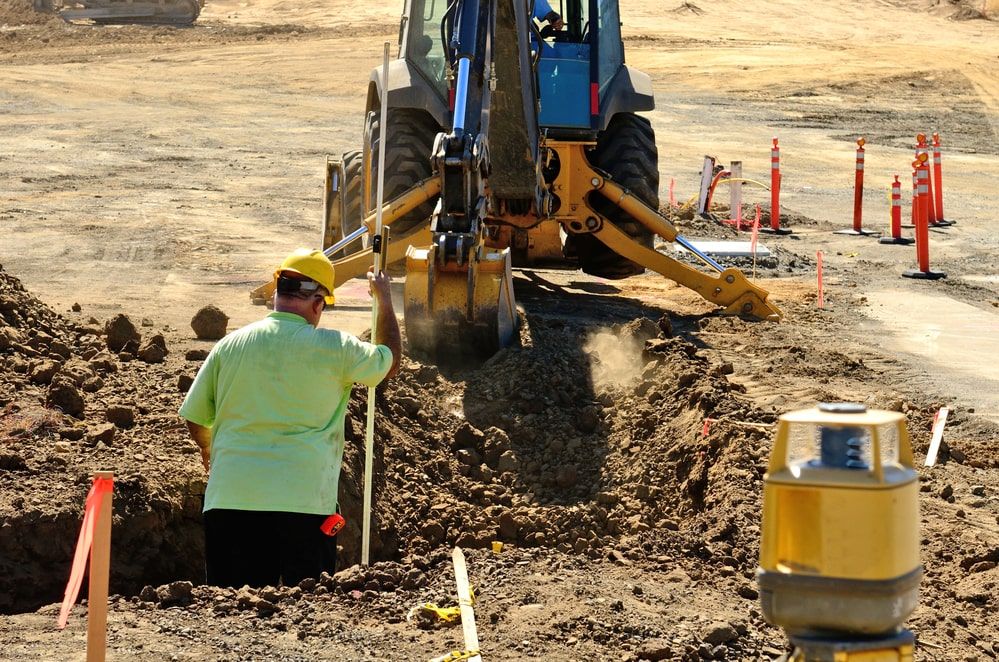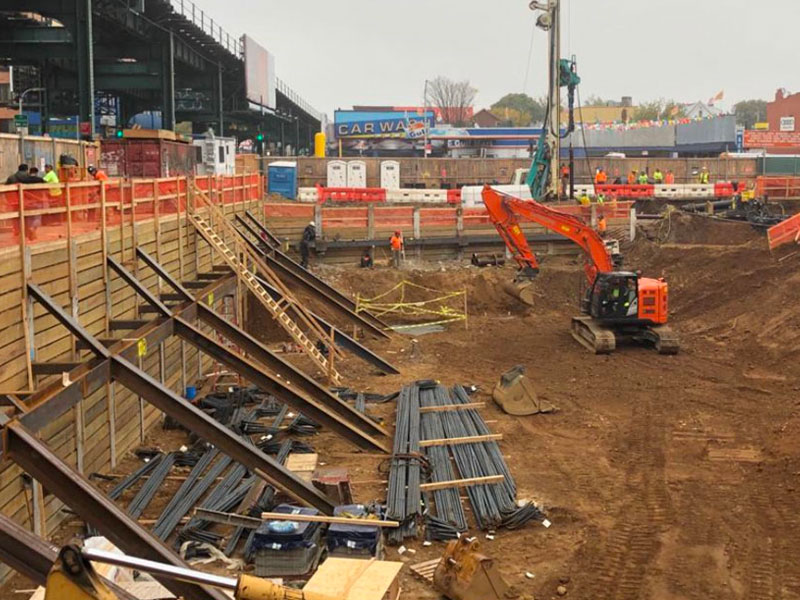Septic Ohio - Comprehensive Septic System Services in Ohio
Septic Ohio - Comprehensive Septic System Services in Ohio
Blog Article
Comprehensive Excavation Methods: Mastering the Principles for Success
In the world of building and construction and civil engineering, the value of efficient excavation methods can not be overstated. The careful preparation, precise execution, and careful focus to detail required in excavation jobs require a comprehensive method that includes numerous basic aspects. From initial soil analysis to the application of precaution and regular development tracking, grasping these core aspects is essential for achieving success in any excavation venture. The real proficiency exists not merely in recognizing these fundamentals but in effortlessly incorporating them to navigate the complexities of excavation jobs with finesse.
Recognizing Excavation Job Planning

Successful excavation tasks are developed on the foundation of thorough and detailed preparation. The initial stage of any type of excavation project is the drawing board, where crucial choices are made that can substantially impact the result of the task. During this phase, it is vital to collect all relevant info about the site, consisting of topographical surveys, soil make-up, and any type of possible risks that might exist. Comprehending the task timeline, scope, and budget restrictions is important for developing a comprehensive excavation strategy that ensures the task's success.
One secret element of excavation project planning is the development of an in-depth timeline that details the series of activities, due dates, and turning points. This timeline acts as a roadmap for the job team, allowing them to track progression and make essential changes to make sure the job stays on routine. Additionally, a distinct spending plan that represents all expenses, including tools service, labor expenses, and materials, is vital for avoiding cost overruns and hold-ups. By meticulously taking into consideration all these aspects throughout the planning phase, excavation jobs can be implemented effectively and efficiently, leading to effective results.
Soil Analysis and Website Analysis
Carrying out detailed soil analysis and site analysis is a crucial action in the prep work stage of any excavation job. Dirt analysis involves establishing the composition, framework, and homes of the dirt at the excavation website. This information is vital for understanding the soil's bearing capability, moisture material, and potential for erosion, which are crucial consider figuring out the excavation approaches and equipment needed for the task.
Site evaluation surpasses dirt evaluation and includes a more comprehensive analysis of the overall site conditions. This evaluation consists of identifying any possible risks, such as underground utilities, environmental concerns, or unstable surface, that can affect the excavation procedure. By completely assessing the site, project supervisors can create efficient excavation methods that prioritize safety, performance, and ecological security.
Using advanced technologies like ground-penetrating radar, dirt tasting, and drone studies can enhance the precision and performance of soil evaluation and site evaluation. Spending time and resources in these initial actions can eventually save time and protect against expensive delays or problems throughout the excavation procedure.
Equipment Option and Use
Effective excavation projects count greatly on calculated devices choice and usage to make sure optimal performance and productivity. Picking the appropriate tools for the task is important in making the most of efficiency and lessening downtime. Factors such as the kind of soil, deepness of excavation, and job scope play a considerable role in establishing the most suitable devices for the job at hand.

In addition to selecting the appropriate equipment, proper usage is vital to task success. Operators should be educated to take care of the tools securely and successfully - lancaster trenching. Routine maintenance checks and timely repairs help protect against failures and make certain constant performance throughout the project
Safety Actions and Rules Conformity
In the world of excavation jobs, focusing on safety and security actions and conformity with guidelines is vital to making certain a safe and secure and legally audio linked here operational environment. Precaution encompass a series of methods, including performing complete website assessments, implementing proper signs and obstacles, and giving adequate safety training for all employees associated with the excavation process. Adherence to regulations, such as OSHA needs in the United States, ensures that the excavation job meets the essential requirements to shield workers, spectators, and the surrounding atmosphere.

Surveillance Progression and Adjusting Strategies
How can predict managers properly track the innovation of excavation jobs and adapt their strategies accordingly to maximize results? Monitoring progression is crucial for making sure that excavation jobs remain on track and satisfy deadlines. Task managers can utilize numerous tools and strategies to track development, such as day-to-day report card, routine site evaluations, and progressed tracking technologies like drones and general practitioners tracking systems. By continuously monitoring the job's advancement, supervisors can identify any prospective hold-ups or problems beforehand and take positive actions to address them.

Verdict
In final thought, grasping the fundamentals read review of thorough excavation methods is necessary for the success of any type of project. By recognizing task preparation, examining soil and site problems, picking proper tools, abiding with safety and security policies, and checking development, job managers can ensure a reliable and smooth excavation procedure. Executing these strategies will certainly result in effective outcomes and lessen potential threats or setbacks throughout the excavation task.
The initial stage of any kind of excavation project is the preparation phase, where vital choices are made that can considerably influence the end result of the project. Recognizing the project budget, range, and timeline constraints is important for developing a comprehensive excavation plan that makes sure the task's success.
Just how can project managers successfully track the advancement of excavation jobs and adapt their techniques appropriately to maximize end results? By very closely keeping track of development and being ready to adjust methods, task supervisors can boost the total success of excavation tasks.
By recognizing task preparation, assessing dirt and website problems, Discover More picking appropriate equipment, conforming with safety guidelines, and keeping track of progression, task managers can guarantee a reliable and smooth excavation procedure.
Report this page